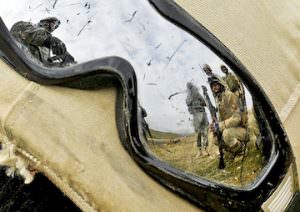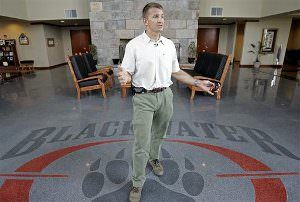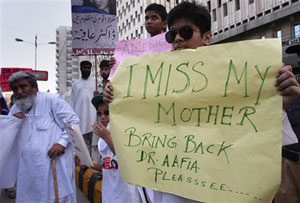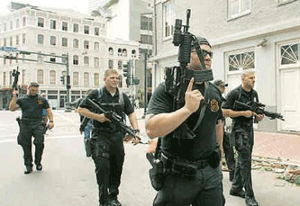Business Booms in the Executive Protection Industry
A rising number of celebrities, corporate executives and other people with great wealth and status are paying big bucks for personal protection forces. (more)
A rising number of celebrities, corporate executives and other people with great wealth and status are paying big bucks for personal protection forces. Almost 80 percent of executives polled by members of the security industry expressed an increased need for bodyguards in the current economic recession, with some protection firms reporting 30 to 50 percent increases in revenue in 2009.
There is reason to fear the social consequences of a small but growing population of personal mercenaries. Recent neurological research, including the famous study of the brains of London taxi drivers, has demonstrated that what one learns and does on a regular basis for long periods of time structures the mind. As a friend of this writer familiar with such studies said after reading the article below: “A job in which one must be on alert for eight or more hours daily for passers-by, amblers and loafers who look (in the mind’s eye) suspicious cannot but reshape one’s mental structure, gradually and implacably making one more and more immune to other and more sociable human feelings, thoughts and activities.” –ARK
Your support is crucial...Mother Jones:
There are no reliable numbers on the growth of executive protection (EP), but the experts I spoke with say it has expanded at a rapid clip since the 1980s, with dozens of new players breaking into the game. That happens to be the same period during which the top 1 percent of US earners nearly tripled their annual income (PDF). More than a few of them, it seems, have felt compelled to hire men with guns.
… [World Protection Group Inc. founder and CEO, Kent] Moyer quickly learned that protecting [Playboy magazine publisher] Hef was less a matter of brawn than of discreet surveillance and detailed planning. By the early aughts he’d launched WPG, with a top Hollywood talent agency as his first client. The collapse of the World Trade Center towers proved a boon for executive protection; soon after, WPG began landing corporate clients, and sales shot up by 40 to 50 percent.
… In 2009, EP firms discovered a powerful marketing tool in the outrage over bank bailouts. “There has never been this kind of populist anger before,” Eden Mendel, director of security consulting at Kroll, a risk advisory firm, told the Financial Times. “When executives are revealed on television with bonuses they become a target.” Nearly 80 percent of executives polled by the American Society for Industrial Security agreed that “the need for security has increased in the current economic climate,” with “general increases in crime” and “employee layoffs” cited as the biggest threats. Executive protection firms like WPG, 360 Group International Inc., and the Steele Foundation reported revenue spikes of 30 to 50 percent in 2009, despite the recession. “Our business gets better as the economy gets worse,” Moyer told me.
As we navigate an uncertain 2025, with a new administration questioning press freedoms, the risks are clear: our ability to report freely is under threat.
Your tax-deductible donation enables us to dig deeper, delivering fearless investigative reporting and analysis that exposes the reality beneath the headlines — without compromise.
Now is the time to take action. Stand with our courageous journalists. Donate today to protect a free press, uphold democracy and uncover the stories that need to be told.





You need to be a supporter to comment.
There are currently no responses to this article.
Be the first to respond.